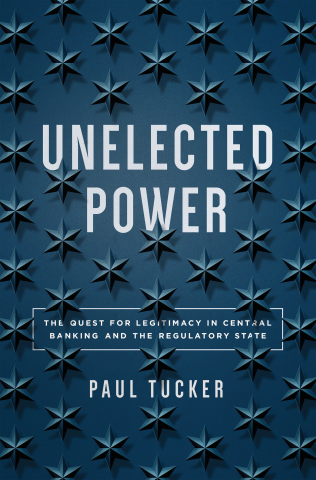In a recent review of Paul Tucker’s new book Unelected Power (extracted here for ProMarket), Diane Coyle of the University of Manchester and the consultancy Enlightenment Economics took issue with Tucker’s application of his principles of delegation of power to competition policy. Luigi Zingales, in turn, addressed her objections with the following note on her review.
 [Editors’ note: This comment has been lightly edited for republication on ProMarket.]
[Editors’ note: This comment has been lightly edited for republication on ProMarket.]
There is no better way to dismiss a serious point than to mischaracterize it and then to refute logically the mischaracterization. This is what Diane Coyle seems to be doing in reviewing Tucker’s recent book, Unelected Power. The serious point Tucker raises is that experts appointed to independent agencies must be constrained by a monitorable objective set by elected politicians. Otherwise, they will lose legitimacy when (inevitably) they make mistakes. You may agree with his point (I happen to do so) or disagree, but it is a new and refreshing idea that must be taken very seriously, especially when it comes from an expert who was instrumental in running the monetary and financial policy at the Bank of England during the financial crisis and its aftermath.
Coyle mischaracterizes Tucker’s position as independent agencies “should have the way they implement policy set out for them.” She then proceeds to dismisses this idea on the basis that “if legislatures can change the operating rules whenever they choose,” “the time inconsistency problem common to so many regulatory contexts would return with a vengeance.” There is a huge difference, however, between setting monitorable objectives and setting the operating rules. In the monetary context, a monitorable objective is “inflation must be at x%”; the operating rules involve how to achieve this objective (through the interest rate or through the control of monetary aggregates). My reading of Unelected Power is that Tucker wants the first objective to be set by politicians, leaving the choice of operating rules to experts. On the one hand, a politician seeking reelection would find it impossible to change the objective fast enough to benefit his electoral chances. On the other hand, choosing (and changing as needed) the inflation goal is ultimately a fiscal decision with important distributional consequences, which cannot be delegated to an unelected official.
Coyle also mischaracterizes Tucker’s description of the 1970s change in antitrust policy in the United States. During the first part of the 20th century, US antitrust was dominated by a Brandeisian idea that the effects of economic concentration are not only economical, but also political. It is based on this idea that at the end of the war the American occupying forces broke up Japanese Zaibatsu and German conglomerates like the infamous IG Farben. During the 1970s, the so-called Chicago School narrowed the antitrust focus to the mere economic consequences of concentration.
Coyle claims that “Tucker believes – wrongly – that the ‘Chicago School’ approach of using a consumer welfare criteria means competition authorities can only look at prices.” To the contrary, Tucker is aware that a consumer welfare criterion can include quality considerations and dynamic efficiency issues (p. 61-62). What it does not include is the emphasis on freedom present in Brandeis and German ordo-liberalism (p. 168-9).
Tucker, who does not necessarily disagree with the change, objects to how it occurred: based on a consensus of experts, rather than to a political decision. Although the appointment of judges such as Bork and Posner by Reagan was a political decision, it was not a transparent one, consciously made by Congress after appropriate deliberation.
Toward the end of her review, Coyle raises a much more serious question: “Are elected politicians so respected now that they would reinject legitimacy back into economic governance?” She concludes that “opinion polling suggests they are among the groups the public trusts least.” It is a very widespread point of view, but it misses the central point of Unelected Power. The key advantage of a democratic system is that we can distinguish between who governs us and the system of government. If we do not like who governs us, we can change him or her. Unelected power cannot be changed. The more people feel that key controversial decisions are made by unelected representatives, the more they will lose trust in the system. Thus, rather than a justification not to delegate decisions to the democratically elected representatives, the lack of public trust is a reason to move in the direction Tucker suggests.
The only point I agree on with Coyle is that the book is not an easy read. But the problems it tackles are not easy either. In a world of easy-to-read airport books with not much depth, Unelected Power stands out for its unique ability to weave in economic arguments with political science and legal ones. It is a tome to ponder, not a book for the beach, but it is worth all its 600 pages.
For more on Paul Tucker, check out his discussion with Luigi Zingales and Kate Waldock on the Stigler Center podcast Capitalisn’t.
Disclaimer: The ProMarket blog is dedicated to discussing how competition tends to be subverted by special interests. The posts represent the opinions of their writers, not necessarily those of the University of Chicago, the Booth School of Business, or its faculty. For more information, please visit ProMarket Blog Policy.






